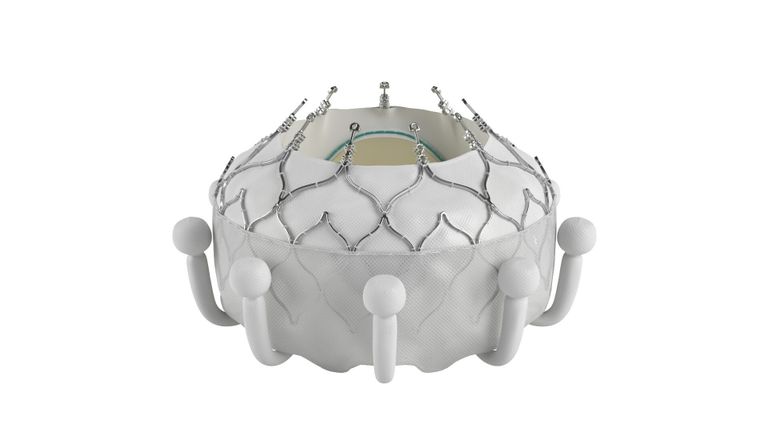Dive Brief:
- Edwards Lifesciences received a CE mark for what it says is the world’s first valve replacement system to receive regulatory approval to treat tricuspid regurgitation.
- The device, called Evoque, is intended to treat tricuspid regurgitation, a heart condition where the valve flaps between the right atrium and right ventricle don’t close properly, allowing blood to leak back through.
- Edwards plans to share results of a pivotal trial during the Transcatheter Cardiovascular Therapeutics (TCT) scientific symposium next week in San Francisco. It also expects Evoque to receive approval in the U.S. by the end of 2024, CEO Bernard Zovighian told investors in July.
Dive Insight:
The European approval for Evoque adds a new way of treating tricuspid valve disease. Current options available in Europe include Edwards’ Pascal system, an implant that clips the two valve leaflets together, Abbott’s competing TriClip device, and Edwards’ Cardioband device, which is placed around the valve to help it close tightly.
Neither Edwards nor Abbott have any approved transcatheter treatments for tricuspid valve disease in the U.S., but Abbott submitted its TriClip device to the Food and Drug Administration earlier this year for review.
Evoque and Pascal are part of Edwards’ transcatheter mitral and tricuspid therapies (TMTT) segment, which is smaller than its transcatheter aortic valve replacement (TAVR) business in sales, but growing quickly. Last year the segment reported sales of $116.1 million, a 30% increase year-over-year, and in 2023, the company expects sales of $180 million to $200 million.
Daveen Chopra, Edwards’ corporate vice president of TMTT, told investors in July that tricuspid treatments may be newer and have a smaller market size, but they continue to see strong growth, especially in Europe.
Edwards’ Evoque system consists of a self-expanding frame, an intra-annual sealing skirt and tissue leaflets made from bovine pericardial tissue, similar to its other artificial valves. The company plans to sell the devices in three sizes.
A single-arm study presented last year found that the device was associated with a 90% survival rate and 88% freedom from heart failure hospitalization, and 98% of patients experienced a “significant and sustained reduction” to mild or trace tricuspid regurgitation, according to the company’s statement.
The company plans to share results of its TRISCEND II pivotal trial at TCT on Oct. 26 in San Francisco.
Philipp Lurz, director of cardiology at the University of Mainz in Germany and the study’s European principal investigator, said in a statement the new treatment can provide “significant improvements” to patients’ quality of life, “now offering a therapy to many patients who previously had no treatment options.”

